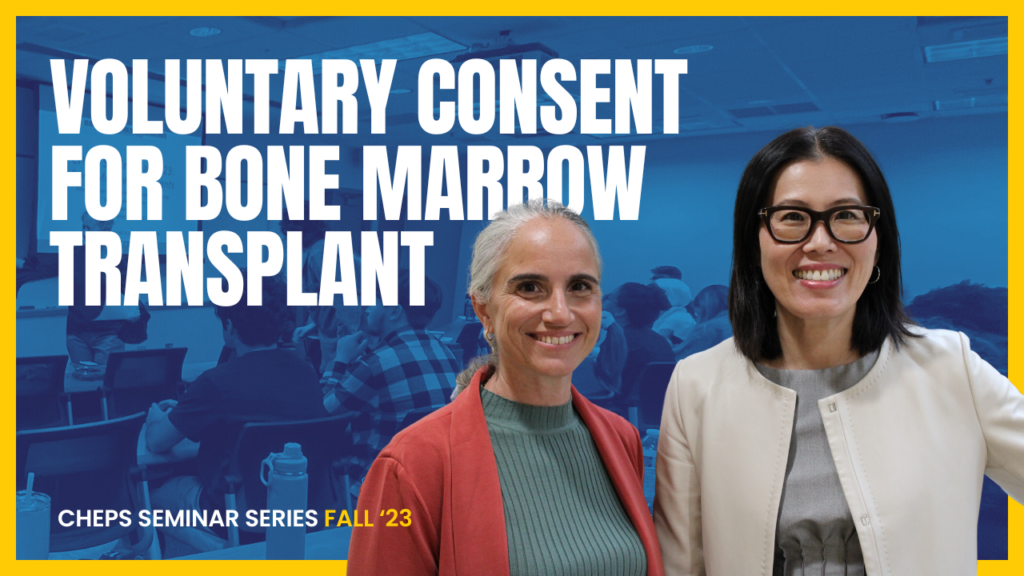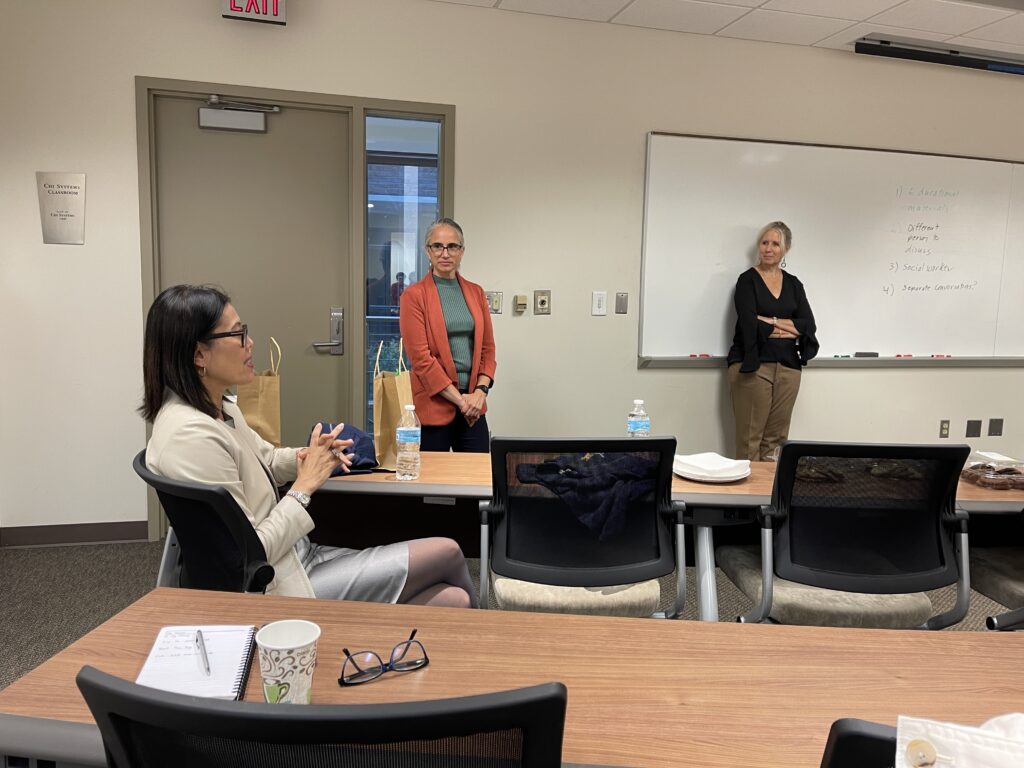
Once considered a “last resort” for those diagnosed with bone marrow cancer, bone marrow transplants (BMTs) have become a more successful treatment option in recent decades. As the number of BMTs performed around the world continues to rise, so do questions about its ethical complexities.
On Monday, September 25th, the Center for Healthcare Engineering & Patient Safety (CHEPS) partnered with Sung Won Choi, MD, MS and Jodyn Platt, MPH to discuss the intricacies of informed consent.


Bone marrow basics
Depending on the kind of cancer a patient is diagnosed with, there are different methods for BMT: while autologous transplants allow a person to “donate” their own pre-chemotherapy stem cells to themselves, allogeneic transplants require donation from another person. Receiving an allogeneic transplant increases a patient’s chances of developing graft versus host disease, a condition where the donated (grafted) stem cells attack the immune system of the recipient (the host).
There are additional risks and side effects of BMT for both recipients and donors to consider, including pain, fatigue, and anesthesia-related complications. In order for transplanted marrow to “take,” providers must suppress the recipient’s immune system, increasing their vulnerability to infection.
Further, finding appropriate donors (those matching in a blood protein known as human leukocyte antigen) can be difficult. Biological siblings, however, prove to be matches 25% of the time. So, what do you do when all of these risks exist and yet a young child—unable to truly comprehend the procedure—turns out to be their sibling’s match?
Consent or coercion?
Initial transplant consultations last only one hour, and yet providers must somehow explain processes, answer questions, and outline life threatening complications without overwhelming the patient and their family members.
Choi, a pediatric hematologist/oncologist at Michigan Medicine and studying the biological, clinical, and psychosocial outcomes related to BMT, shared her experience working with families in this context:
“With the allogeneic transplant, there are far more risks that we have to explain during the consultation,” said Choi, and still “there are ethical implications and things we need to advocate for child donors.” She acknowledged the incredibly complicated position that many primary caregivers find themselves in when they learn that two of their children match: it’s not until the age 13 that a child gains the ability to assent, and it’s not until the age 18 that a child gains the ability to consent.
Platt, an Associate Professor of Learning Health Sciences at U-M with a background in medical sociology and health policy, next offered insight about medical consent.
“It needs to be informed, voluntary, and not coerced,” Platt shared. The line between what constitutes education versus coercion is, at times, blurry. Is it ethically wrong to allow patients and their families to discuss the BMT process with others who have successfully gone through it? How do you navigate a situation where siblings have strained relationships with their caregivers, or strained relationships with each other? What can providers do to reduce parental pressure?
There are also equity considerations that must be made when relaying clinical information; an individual’s reading level, for example, will impact how accurately they will be able to interpret a 15-page consent form.
Staying solution-oriented
Despite the intimidating ramifications associated with “getting it wrong,” seminar attendees had no shortage of questions and ideas for how to improve the informed consent process for BMTs (some of which, as they realized, are already in effect):
- Provide accessible education materials to patients and families so they can continue learning about the BMT process outside of clinical consultations.
- Have multiple providers, including social workers, speak with each family about the procedure.
- Modulate language used according to patient/family age, fluency with English, and level of education.
- Facilitate conversations with other patients/families who have considered BMT, but only upon request, and only if varied opinions and perspectives are likely.
Join us
To RSVP to one or more sessions (or to request access to a session recording), please email [email protected].
— Written by Hannah Buck, CHEPS Staff

